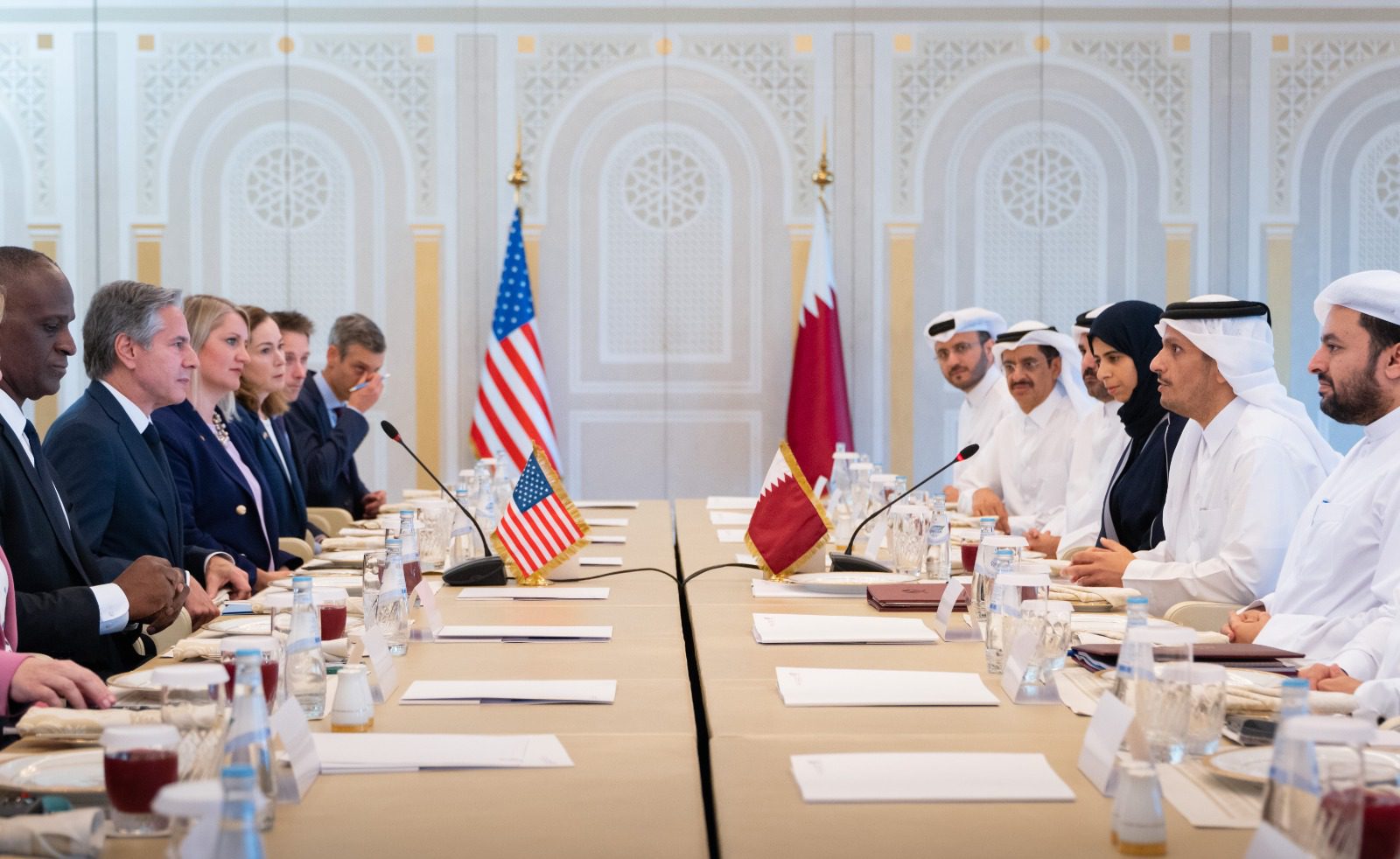As 2022 drew to a close, the sporting world relished in a riveting FIFA World Cup full of historical firsts. Going forward, policymakers have a chance to reflect on the lessons learned from the organization of that event, which was the first time it was held in the Middle East. With the United States, Mexico, and Canada jointly preparing to hold the 2026 FIFA World Cup, Washington has signed a letter of intent with Doha to collaborate on preparations.
The FIFA World Cup Qatar 2022 was accompanied by a stream of criticism over the host’s rights record. While Qatar must still improve labor reform enforcement and increase protections for marginalized communities, the country also broke new ground in other important areas. Its policies concerning alcohol and accessibility for people with disabilities ultimately led to a safer and more inclusive World Cup. The next tournament’s organizers should reflect on these successes and consider implementing similar policies.
Alcohol Restrictions Make World Cups More Inclusive
Qatar’s last-minute decision to ban alcohol from the stadiums sparked outrage in many circles in the Western world. Yet it actually ended up benefiting the majority of spectators and enhancing their World Cup experience. Spectators were able to enjoy the matches without fear of being subjected to aggressive behavior by intoxicated fans.
Importantly, women and families with young children said they were able to enjoy the matches in Qatar without fearing for their safety. This was particularly important after the end of each match, when tens of thousands of spectators left the stadiums at the same time, in a seamless, peaceful manner. These policies demonstrably helped fans feel safer, although there is no indication yet that the North American hosts are considering similar policies.
For all the media obsession with the alcohol ban at stadiums, there seemed to be a form of collective amnesia—or hypocrisy—regarding past FIFA World Cups where alcohol was similarly banned. In 2003, Brazil enacted a ban on alcoholic beverages at stadiums in an attempt to curb violence at matches. There was some evidence of success, with one study finding that “alcohol consumption can be an important trigger for violence in football.”
That ban was subsequently eased after pressure from FIFA, whose major sponsors include beer company Budweiser. Other countries have also implemented restrictions on alcohol sales at stadiums, including in England (for almost 40 years) and France. Qatar was not the first country to enact policies aimed at preventing hooliganism and disorder at matches, although it more successfully resisted pressures from FIFA and its corporate sponsors than Brazil did. And while the evidence of whether alcohol consumption increases the risk of disorder at matches is contested, fan perceptions of safety are a vital part of making everyone feel included.
Still, some factors specific to Qatar, which led to a successful ban on alcohol at stadiums, are absent from North America. Alcohol consumption in Doha was already heavily regulated and restricted to hotels and designated areas, which expanded to include fan zones and VIP areas during the World Cup.
An efficient and modern public transportation system likely mitigated certain unintended consequences of an alcohol ban in Qatar. A study on alcohol bans at U.S. college football games found that they often increase drunk driving rates without solving the problem of fan intoxication, as fans simply consume more alcohol before and after the games. As such, an outright ban may not be the most effective policy, but creating alcohol-free zones at stadiums and improving public transportation infrastructure in host cities are alternatives worth considering.
It is also important to consider the spillover effects of increased alcohol consumption during sporting events. A study in England found that rates of domestic violence increase during the World Cup. The authors found that, regardless of the outcomes, when England’s national team played a FIFA World Cup match, it correlated with higher rates of alcohol-related domestic abuse in parts of the country. It was also notable that the Qatar World Cup was the first ever at which not a single England fan was arrested.
So, we can see that the impact of alcohol restrictions at stadiums reverberates on and off the pitch, and in other parts of host cities. These restrictions can protect vulnerable groups from violence and allow non-drinkers to enjoy the tournament without fear of having to contend with intoxicated individuals.
Learning the Lessons
The Qatar World Cup also provided a world-class example of inclusion in other areas; for example, by engaging civil society groups to enhance accessibility and inclusion for people with disabilities. Through its Accessibility Forum, Qatar consulted with civil society groups and individuals with disabilities in the World Cup planning process. More inclusive policies were then implemented, allowing blind fans to listen to live descriptive commentary of matches through a mobile app and establishing sensory rooms to accommodate neurodivergent fans. The next tournament’s North American hosts should consider implementing similar ones in 2026—and there are reasons for optimism that they will do so.
During the World Cup, U.S. Secretary of State Antony Blinken and Qatar’s Foreign Minister Mohammed bin Abdulrahman bin Jassim Al Thani signed a letter of intent on the sidelines of the fifth Qatar-U.S. Strategic Dialogue. It outlines plans to collaborate on preparations for the 2026 FIFA World Cup, as the two countries did in the lead-up to the 2022 tournament.
A Strategic Dialogue working group will meet in 2023 to apply policy insights from Qatar to the North American event. Organizing committees from the 2026 host cities also attended matches, presentations, and tours of facilities in Doha.
Engagement with relevant stakeholders early in the process, through the Accessibility Forum, greatly contributed to the formulation and implementation of more accessible policies in 2022. The U.S., Mexico, and Canada will do well to learn from this approach to accessibility, and the Qatar-U.S. Strategic Dialogue working group is a first step in that direction.
However, the letter fails to address other forms of inclusivity and North American organizers have not yet announced plans to implement alcohol restrictions. If there are no restrictions on alcohol sales in and around stadiums, the 2026 World Cup risks ostracizing non-drinkers, minors, families, women, and children who might feel unsafe at matches alongside intoxicated fans.
The 2026 FIFA World Cup should establish alcohol-free zones to make the tournament more accessible for culturally diverse fans and spectators, and to non-drinkers, minors, families, and women who might be at risk of harassment and violence by intoxicated fans.
While many Western critics may view the banning of alcohol at the 2022 FIFA Qatar World Cup stadiums as an exception that they would prefer not to see repeated in future tournaments, the opposite should be true. Alcohol-free zones should become the rule rather than the exception if future World Cups are to be as inclusive as the one held in Qatar. An outright ban is not the best policy for the North American context, as there might be unintended consequences. Yet alcohol-free zones provide a pragmatic compromise.
Football is a global sport—not one entirely defined by beer sales and drinking culture. Future hosts should build on the policy achievements of the 2022 FIFA World Cup in Qatar to continue to make the World Cups to come as inclusive as possible.
The opinions expressed in this article are those of the author and do not necessarily reflect the views of the Middle East Council on Global Affairs.


